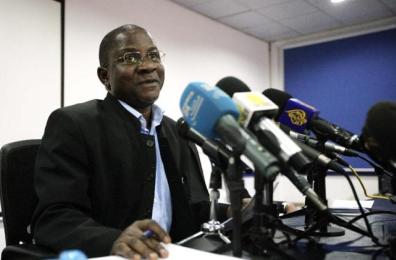UN rights expert urges Sudan to release political detainees
June 24, 2014 (KHARTOUM) – UN independent expert urged the Sudanese authorities to release political detainees in the country and disclosed that the security service refused his demand to meet a rights activist rearrested since last May.

During his 10-day visit, Baderin discussed the arrest of the political opponents and activists, the case of Meriam Ibrahim, press censorship, protection of civilians and humanitarian situation in the Two Areas and Darfur and technical assistance and capacity building in the field of human rights.
The expert before to leave the country held a press conference in Khartoum where he and praised the government for the release of the leader of the opposition National Umma Party Sadiq al-Mahdi last week, adding that officials had informed him about his release before it takes place.
“I also urge the Government to order the release of Mr. Ibrahim Al-Sheikh, and all other political detainees to further demonstrate its good faith and genuine commitment to the national dialogue it has proposed,” he added.
Al-Sheikh, leader of the Sudanese Congress Party (SCP), was arrested in June 2014 for criticising the role of the Rapid Support Forces (RSF), a government paramilitary force affiliated to the National Intelligence and Security Services (NISS). The militia is accused of committing war crimes and atrocities in Darfur region, South Kordofan state.
The government said the SCP leader is still in jail because he refuses to publically apologise and withdraw his criticism.
The independent expert further said that he discussed with the NISS officials the detention of three youth activists, namely Mohamed Salah, Taj Elsir Jaafar and Muammar Musa Mohamed.
“Based on reports I have received, I am concerned about the condition of these detained youths and was disappointed by NISS’s refusal of my request to visit Mohamed Salah to enable me to verify his condition of health,” he said.
He urged the Sudanese authorities to “either bring these youth detainees to trial before a competent court of law if there is evidence of any offence against them, or release them forthwith if there is none”.
Salah was detained several times in the past by the NISS. He had been arrested for 50 days in June-July 2012 and for three weeks in March and April of this year. In both detentions he was tortured.
On 12 May, after one month of his release, Salah was arrested for the third time.
Following a short visit in Kober prison on 14 June, his family said that he was tortured and his legs were wrapped. They noticed that he can’t walk properly as he informed them that he had lost his ability to walk for many days.
The family which calls for international pressures to secure his release said there were clear signs of injuries in his forehead and all over his face and the unveiled parts of his hands.
They also noticed that he was not wearing his permanent eye glasses and his eyes were bloody red. Salah told his family that he had lost sight of his right eye for weeks, and he can now feel the light through but still cannot see.
(ST)

